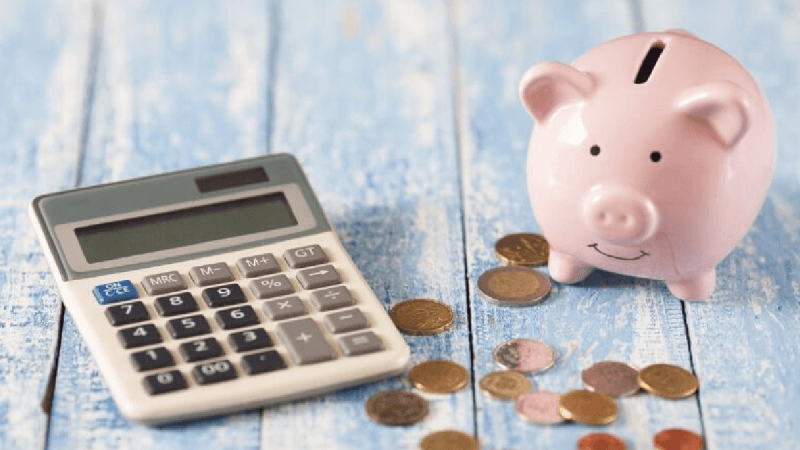Many people feel trapped in debt that seems impossible to pay off. Financial pressure can be overwhelming and affect all aspects of life. If you find yourself in this situation, don't worry, there are effective ways to get out of debt and improve your financial situation.
In this article, we'll give you practical tips for managing your finances, reducing your debt and creating a solid financial plan for the future. Read on to discover how to take control of your financial situation and live a life free of stress and money worries.
Assess your current situation
The first step to improving your financial situation is to know exactly where you stand. Do a complete assessment of your monthly income and expenses, including any debts you have.
It is important to know how much money you are earning and what you are spending it on. If your expenses are greater than your income, you will need to make adjustments to reduce your expenses or increase your income.
Also analyze your debts. Make a list of all the debts you have, including the total amount of debt, the interest rate and the repayment term. Once you have a clear picture of your current situation, you can start looking for solutions to improve it and get out of debt.
Reduce your expenses
One of the keys to get out of debt and improve your financial situation is to reduce your expenses. To do so, you can follow these tips:
- Make a budget: review your monthly income and expenses to identify areas where you can save.
- Change your spending habits: reduce the number of times you eat out, buy generic brands instead of name brands, and adjust your subscriptions to services you don't use often.
- Eliminate debt: avoid using credit cards or loans to finance your purchases and focus on paying off outstanding debts.
- Shop smart: compare prices and look for bargains before buying any item.
Remember that every little bit of savings can make a difference at the end of the month.
Analyze your monthly expenses
To get out of debt and improve your financial situation, it is essential that you analyze your monthly expenses. This will allow you to identify unnecessary or excessive expenses and find areas where you can reduce your spending.
Start by making a detailed record of all your expenses for one month. Include everything from rent or mortgage to grocery shopping and eating out with friends. Once you've recorded all your expenses, sort them into categories such as housing, transportation, food, entertainment, etc.
Then go through your list and find areas where you can reduce your expenses. Are there any utilities you are not using but are paying for? Can you find ways to save on your energy bill? Can you reduce the number of times you eat out?
Once you've identified areas where you can save money, set a monthly budget and commit to following it. This will help you control your spending and make sure you are living within your means.
Identify unnecessary expenses
One of the keys to getting out of debt and improving your financial situation is to identify those expenses that are unnecessary. If you are not clear about what you are spending your money on, it is difficult to control your finances and save for important goals.
Review your bank statements and make a list of all your expenses. Divide these expenses into two categories: essential and non-essential. Essential expenses are those that are necessary to cover your basic needs, such as food, rent or mortgage, utilities, transportation and insurance.
Non-essential expenses are those that are not necessary to live and that you could live without or cut back on, such as spending on entertainment, clothing, restaurants or impulse purchases. Analyze how much you are spending on these expenses and find ways to reduce them. For example, you can eat at home more instead of going out to eat all the time or buy secondhand clothes instead of buying new.
Remember that every little change you make can make a big difference in your finances in the long run.
Negotiate your bills
One way to improve your financial situation is to negotiate your outstanding bills and payments. You can call your suppliers and negotiate a payment plan that fits your budget. In addition, you can look for refinancing options with lower interest rates.
Another option is to look for discounts on your invoices, either for prompt payment or for loyalty to the company. Remember that it is always important to read contracts and agreements carefully before signing them. In short, don't be afraid to negotiate your bills and always look for options that will allow you to improve your financial situation.
Generate additional income
One way to get out of debt and improve your financial situation is to generate additional income. You can consider some options such as:
- Working extra hours at your current job.
- Starting an online business or small business.
- Selling products or services from home.
- Do freelance work in your area of expertise.
It is important that you choose an option that suits your skills and available time. Also make sure that it does not interfere with your current job or your other responsibilities. Remember that generating additional income will not only help you get out of debt, but can also improve your financial situation in the long run.
Looking for additional jobs
One way to increase your income is to look for additional jobs. This can be something temporary, such as working at an event or doing yard work, or something more permanent, such as looking for a second part-time job. Consider your skills and experience to find jobs that match your abilities.
You can also explore online job opportunities, such as conducting surveys or freelancing on specific projects. There are many options available online to earn extra money. Remember that any additional income should be used to pay off your debts or increase your savings. Don't just use it for unnecessary expenses.
Selling items you don't need
Another way to earn extra money to pay off your debts is by selling items you no longer need or use. You can sell them online through websites such as eBay or MercadoLibre, or at thrift stores. Be sure to set a fair and realistic price.
In addition, you can also consider organizing a garage sale or yard sale in your community. This is an excellent opportunity to get rid of items you don't need and make money at the same time. You can even invite family and friends to sell their things as well. Remember that every little bit counts when it comes to paying off your debts and improving your financial situation.
Develop a debt repayment plan
To get out of debt it is essential that you develop a payment plan. This will allow you to organize your finances and establish a clear strategy to pay off your commitments. The first thing you should do is identify all your debts, including the amount, interest rate and due date. Once you have this information, arrange the debts in order of importance and establish a monthly budget to meet the payments.
It is important that you do not take on more debt while you are going through this process. Avoid applying for new credit or loans until you have paid off all your current obligations. If you have several credit cards, start by paying off the one with the highest interest rate and continue with the others gradually. If you have outstanding loans, try to pay more than the minimum payment each month to reduce the time and total cost of the loan.
Don't be discouraged if at first it seems difficult to make your payments. With discipline and perseverance, you can get ahead and improve your financial situation in the long run.
Prioritize your debts
Once you have identified all your debts, it is important to prioritize them in order to design an effective payment plan. To do this, it is recommended that you prioritize them according to the following criteria:
- Highest interest debts: These are the debts that are charging you the most amount of money in interest. It is important that you prioritize them in order to pay them as soon as possible and prevent them from increasing.
- Debts with overdue payments: If you have overdue payments, it is important that you prioritize them to avoid late payments and additional surcharges.
- Debts with a major impact on your credit: If you have any debt that is seriously affecting your credit history, it is important that you prioritize it to avoid future consequences.
Remember to establish a realistic and sustainable payment plan to avoid falling into further debt and to be able to get ahead financially.
Negotiate with your creditors
To get out of debt, it is important that you negotiate with your creditors. This means talking to them and explaining your financial situation. Many times, creditors are willing to make payment arrangements and reduce interest if they see that you are making an effort to pay.
In some cases, you may also consider consolidating your debts into a single loan or credit card with a lower interest rate. This can help you simplify your payments and save money on interest.
Remember that the key to successful negotiation is to be honest and transparent about your financial situation. You must also be willing to compromise and honor the payment agreements you make with your creditors.
Consider debt consolidation or refinancing.
Consolidating your debts means rolling all your debts into one, usually with a lower interest rate, to make repayment easier. Refinancing, on the other hand, means taking out a loan to pay off all your debts and then paying off the loan at a lower interest rate.
Both options can help you lower your monthly payments and simplify your financial situation. But it's important to do your research and confirm that you're getting a lower interest rate compared to your individual debts before consolidating or refinancing.
Learn about personal finance and money management
In order to get out of debt and improve our financial situation, it is important to learn about personal finance and proper money management. Here are some tips:
- Create a budget: it is important to have a spending plan to know our cash inflows and outflows.
- Save: saving is key to have a good financial stability. Allocate a percentage of your income to an emergency fund or for future projects.
- Eliminate unnecessary expenses: review your expenses and eliminate those that are not important or that you can reduce.
- Control your debts: look for alternatives to pay your debts as soon as possible, avoid high interest rates and negotiate with your creditors.
- Look for new sources of income: analyze if you can generate extra income with an additional job or personal project.
Remember that financial success depends on the discipline and knowledge we have about our personal finances. Start improving your financial situation today!
Create a monthly budget
One of the keys to improving your financial situation and getting out of debt is to keep effective control of your income and expenses. To do this, you need to create a monthly budget.
In this budget you should include all your sources of income, such as your salary or any other extra income you have. Then, you should list all your expenses, from the most necessary ones such as rent or mortgage, utilities and food to the less essential ones such as entertainment.
It's important to be realistic and honest with yourself when making this budget. If you spend on something you don't need, include it in the list of expenses to avoid impulsive and unnecessary spending in the future.
Once you have created your monthly budget, carefully review all the numbers and make adjustments if necessary. If you have extra money at the end of the month, consider investing it in a savings account or paying off an additional portion of any outstanding debt.
Learn how to save and invest your money
Once you have gotten out of debt and stabilized your finances, it is important to learn how to save and invest your money to build a solid financial future.
Saving is key to any successful financial plan. You can start by setting savings goals and automating your savings. It is also important to regularly review your expenses and find ways to reduce them.
When it comes to investing, it's important to educate yourself on the different options available and find those that fit your financial goals and risk tolerance. You can consider options such as index funds, stocks or real estate. Maintaining a healthy balance between saving and investing will help you reach your financial goals and create a solid future for you and your family.











